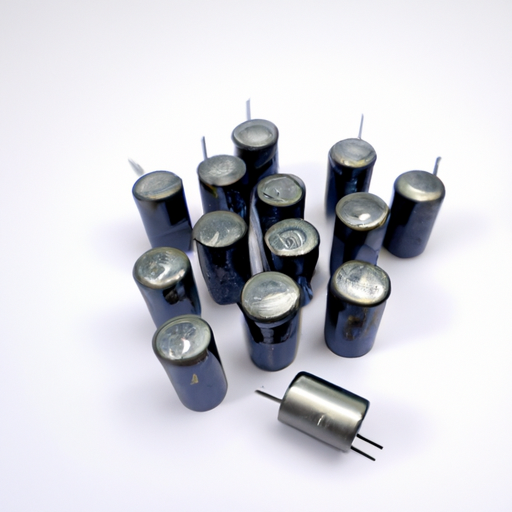Core Functional Technologies of Film Capacitors
1. Dielectric Material: Film capacitors utilize thin plastic films as the dielectric material, which can be made from various polymers such as polyester (PET), polypropylene (PP), and polycarbonate (PC). The choice of dielectric affects the capacitor's performance, including capacitance stability, temperature coefficient, and voltage rating. For instance, polypropylene is often favored for its low dielectric losses and high insulation resistance.
2. Low ESR and ESL: Film capacitors typically exhibit low equivalent series resistance (ESR) and equivalent series inductance (ESL), making them suitable for high-frequency applications. This characteristic allows for efficient energy storage and discharge, minimizing power losses. In applications like RF amplifiers, low ESR and ESL are critical for maintaining signal integrity.
3. High Voltage Ratings: Film capacitors can handle high voltage applications, making them ideal for power electronics, motor drives, and renewable energy systems. Their robust construction allows them to maintain performance under high-stress conditions, which is essential in applications such as electric vehicle charging stations.
4. Temperature Stability: Many film capacitors offer excellent temperature stability, which is crucial for applications that experience varying thermal conditions. This stability ensures consistent performance over a wide temperature range, making them suitable for automotive and aerospace applications where temperature fluctuations are common.
5. Long Lifespan: Film capacitors are known for their longevity and reliability, often exceeding the lifespan of other capacitor types. This makes them a preferred choice in critical applications where failure is not an option, such as medical devices and industrial control systems.
6. Self-Healing Properties: Film capacitors possess self-healing capabilities, meaning that if a dielectric breakdown occurs, the capacitor can recover without permanent damage. This feature enhances reliability and reduces the risk of catastrophic failure, making them ideal for applications in harsh environments.
Application Development Cases
1. Power Electronics: In power supply circuits, film capacitors are used for filtering and energy storage. Their low ESR and ESL characteristics make them ideal for smoothing out voltage fluctuations and providing stable power to sensitive components. For example, in switch-mode power supplies (SMPS), film capacitors help maintain output voltage stability.
2. Audio Equipment: High-fidelity audio applications benefit from film capacitors due to their low distortion and high-frequency response. They are often used in crossover networks and signal coupling applications to maintain audio quality. In high-end audio amplifiers, film capacitors are preferred for their ability to preserve sound clarity and detail.
3. Renewable Energy Systems: In solar inverters and wind turbine applications, film capacitors are used for energy storage and filtering. Their ability to handle high voltages and temperatures makes them suitable for harsh environments. For instance, in solar power systems, film capacitors help manage the energy flow and improve overall system efficiency.
4. Motor Drives: Film capacitors are employed in motor drive applications to improve efficiency and reduce electromagnetic interference (EMI). They help in filtering out noise and providing stable operation under varying load conditions. In variable frequency drives (VFDs), film capacitors enhance performance by smoothing the output waveform.
5. Telecommunications: In communication systems, film capacitors are used for signal coupling and decoupling. Their high-frequency performance ensures minimal signal loss and distortion, which is critical for maintaining data integrity. In RF communication systems, film capacitors are essential for tuning circuits and impedance matching.
6. Industrial Automation: Film capacitors are utilized in various industrial automation applications, including sensors and control systems. Their reliability and long lifespan reduce maintenance costs and downtime. In programmable logic controllers (PLCs), film capacitors help stabilize power supply and improve signal integrity.
Conclusion
The CFR-25JB-52-1M1 film capacitor exemplifies the advanced technology and versatility of film capacitors in modern electronic applications. Their unique properties, such as low ESR, high voltage ratings, and self-healing capabilities, make them indispensable in a wide range of industries, from power electronics to telecommunications. As technology continues to evolve, film capacitors will play a crucial role in the development of more efficient and reliable electronic systems, paving the way for innovations in energy management, communication, and automation.

